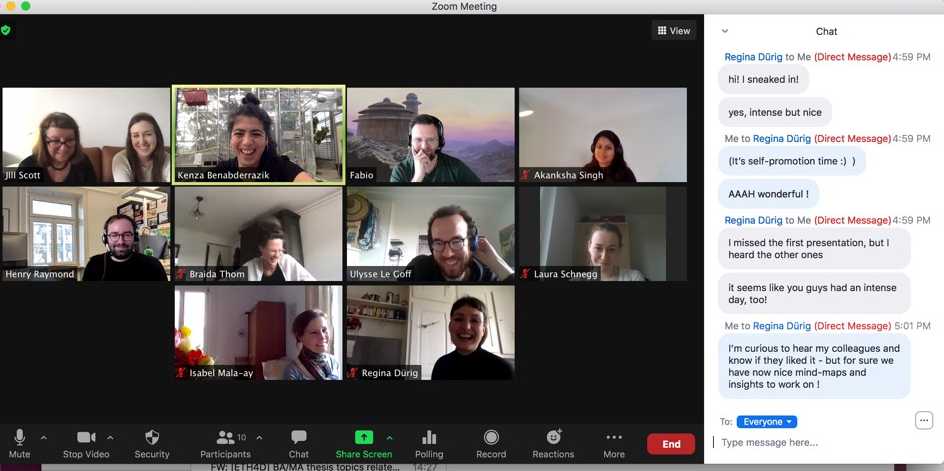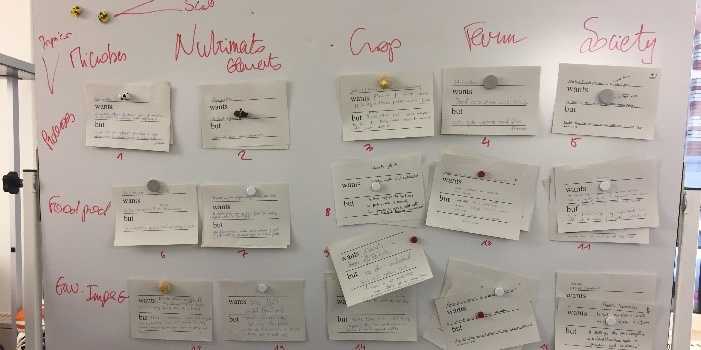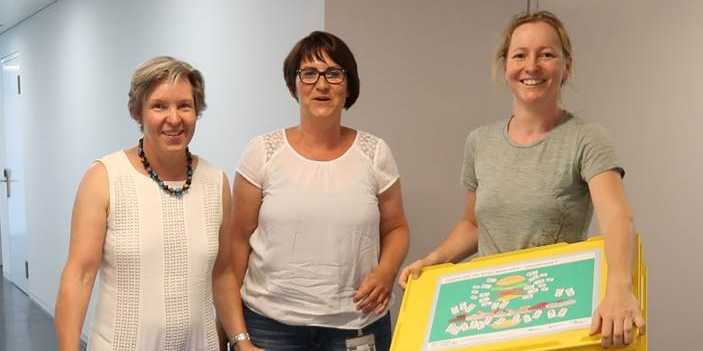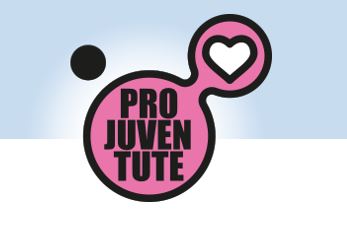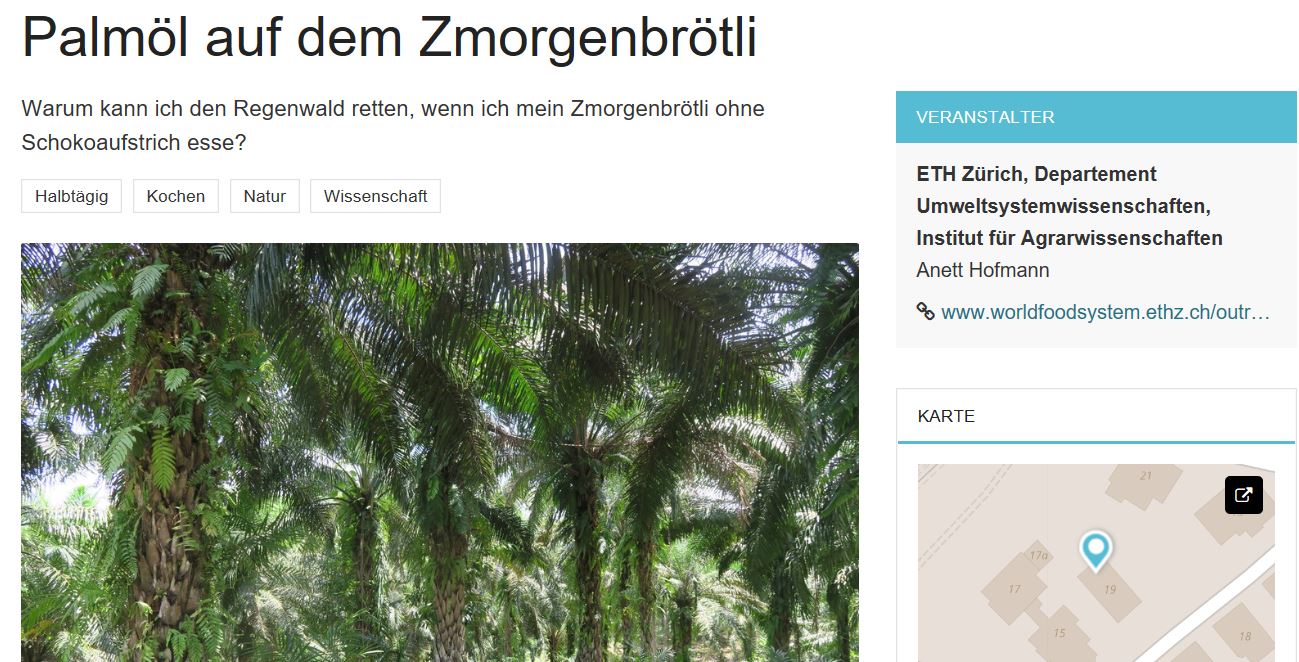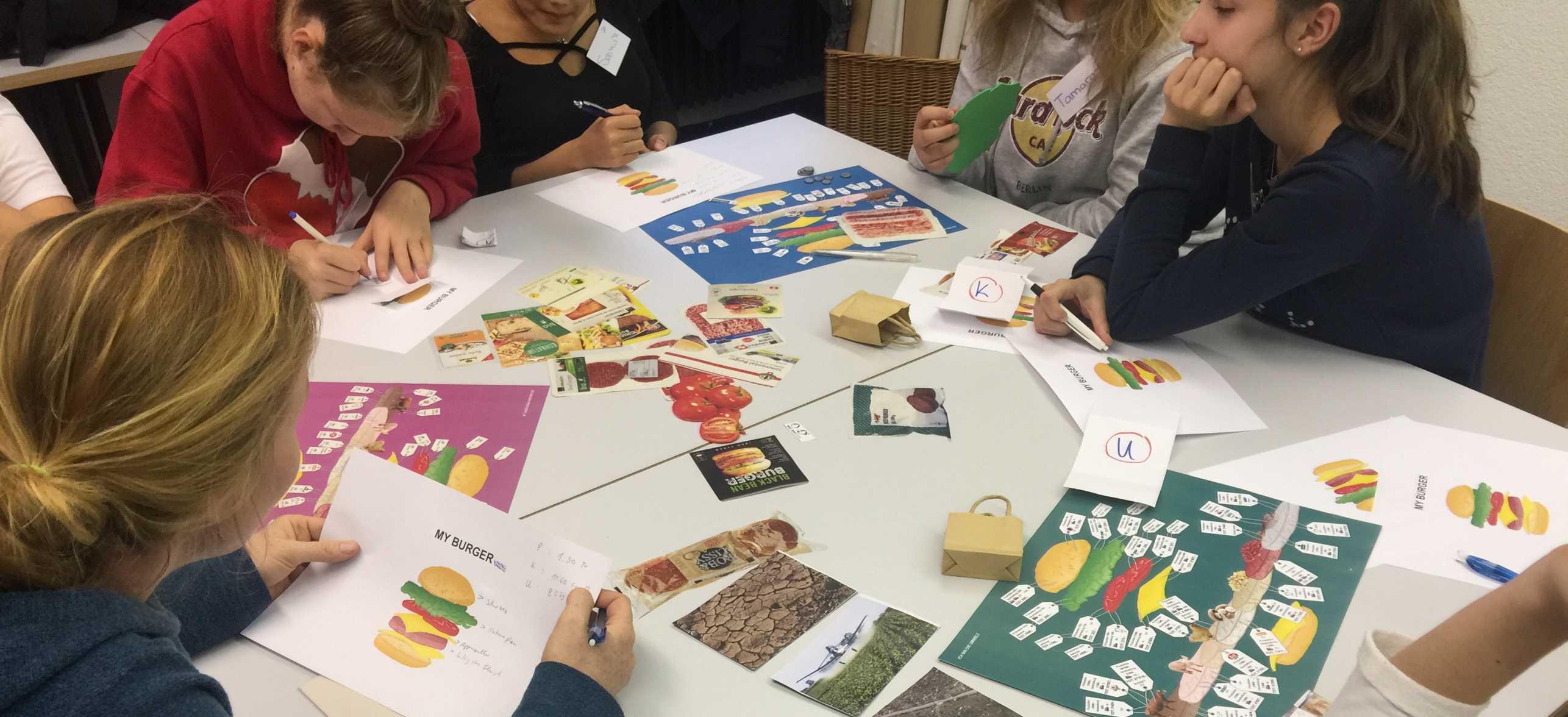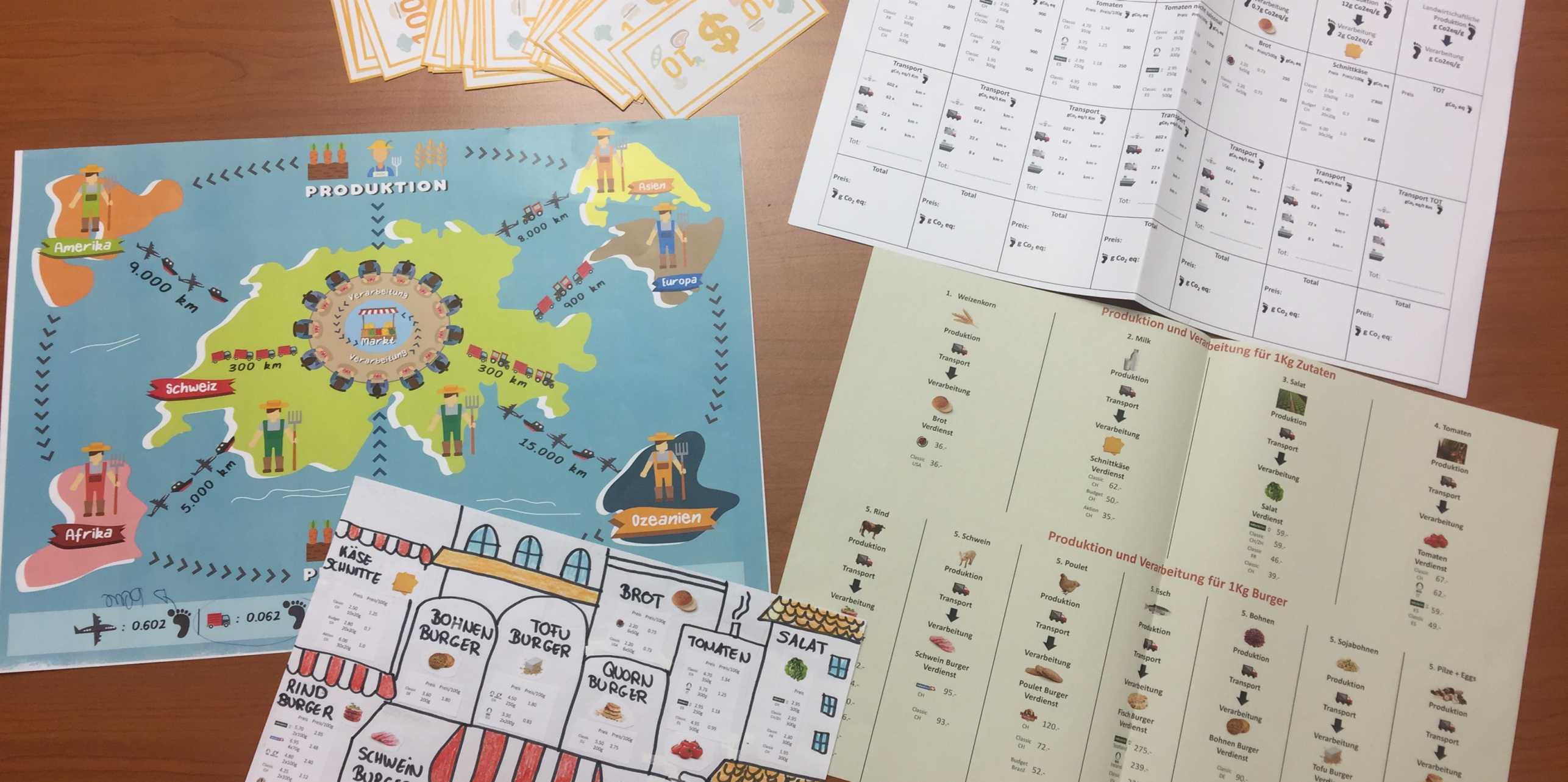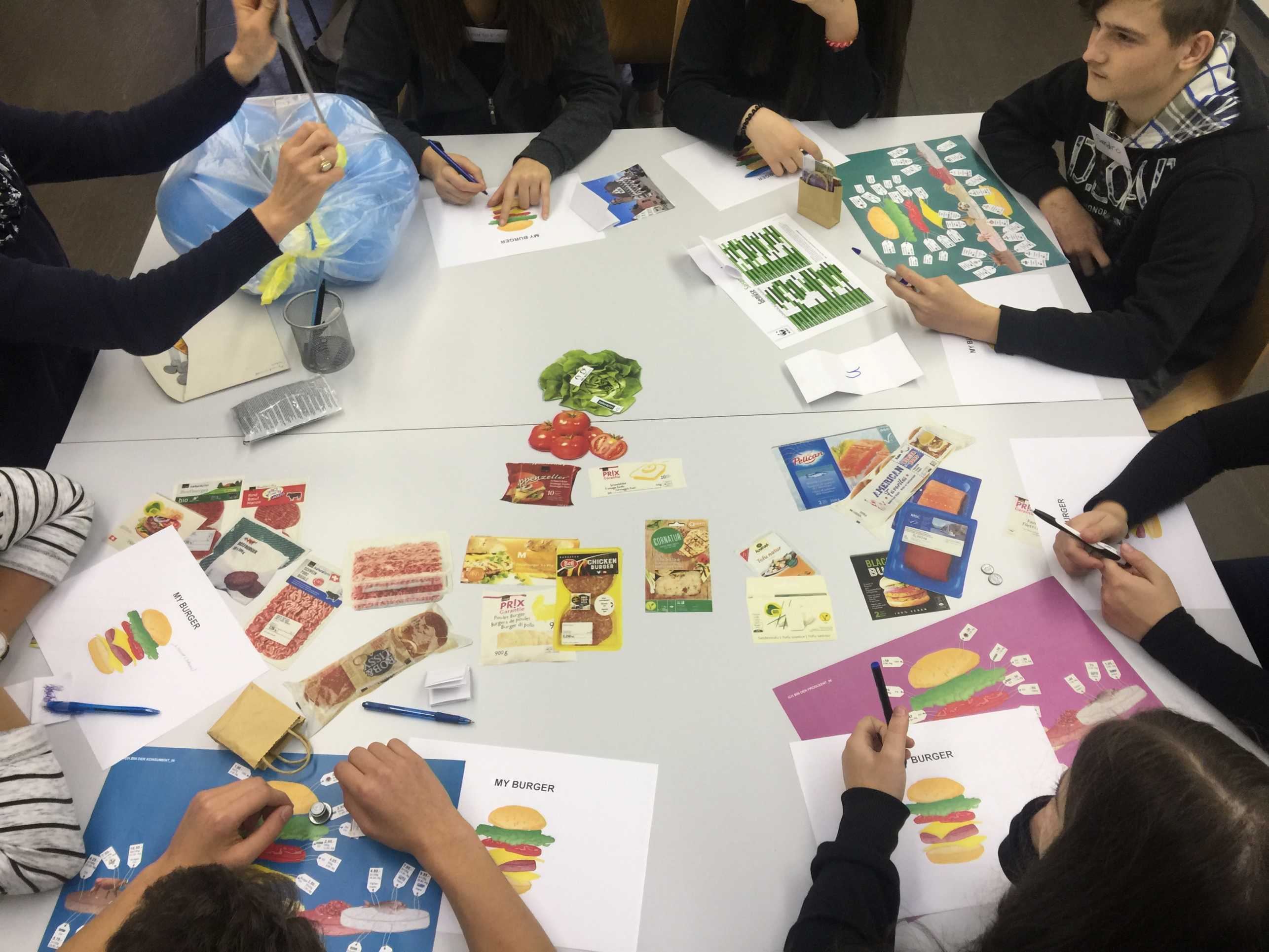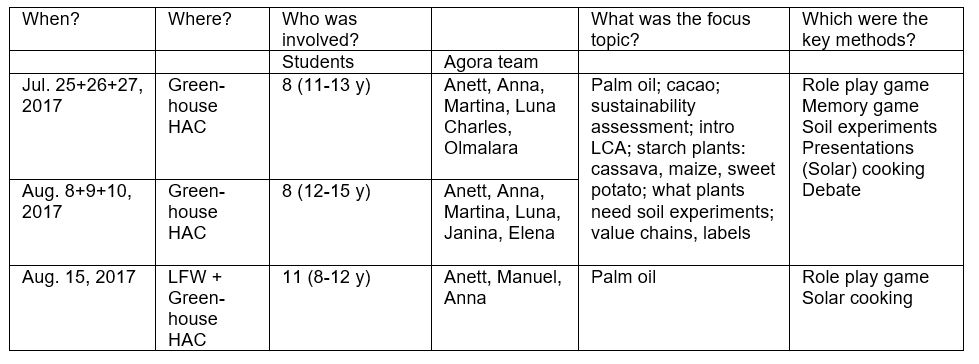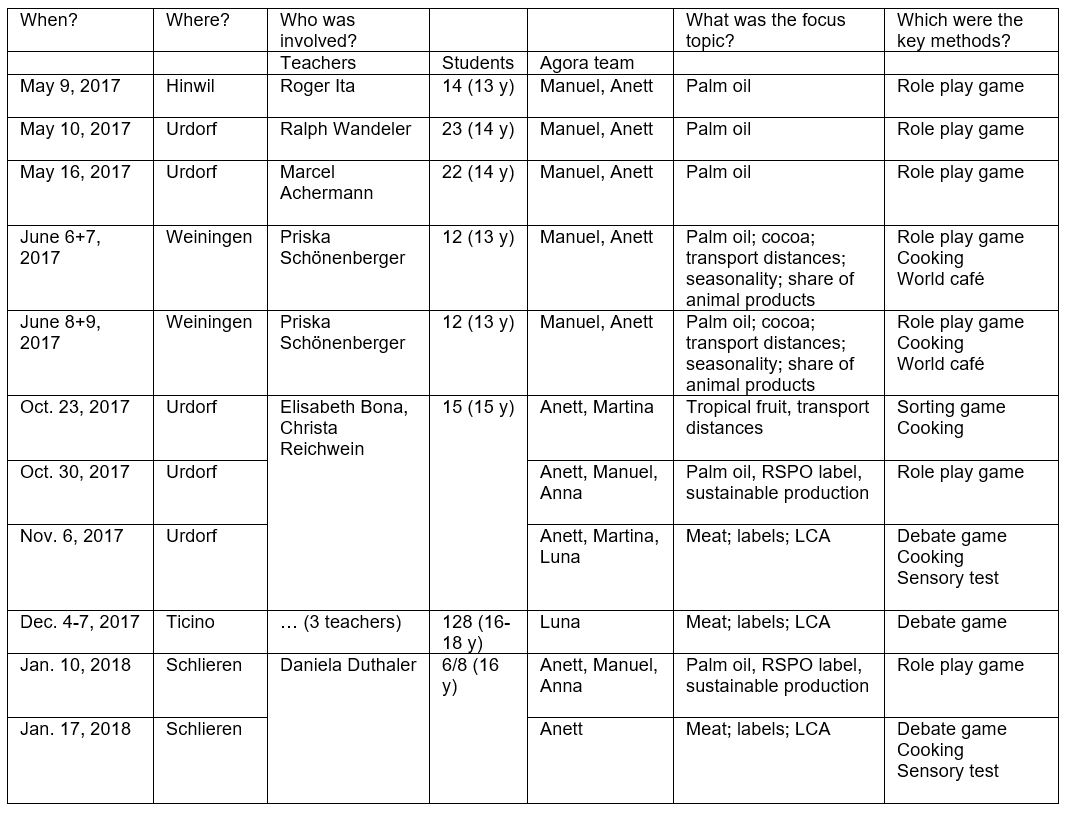Milestones
Exhibition at the Muhlerama, May-June 2022
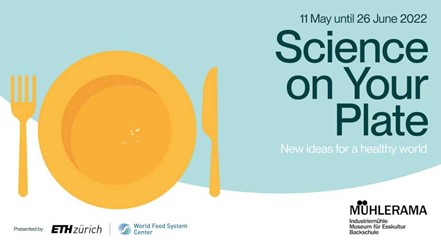
In May and June 2022, the first story was displayed at the WFSC 10 years Jubilee external page exhibition “Science on Your Plate” at the Muhlerama museum in Zürich. Hundreds of visitors were able to interact with the many layers of the story, the research withing the SAE group via the Augmented reality App : AgrART developed by the Game Technology Center. The exhibition was also the occasion to display the work of the young students who contributed to the AGORA project along the year.
https://worldfoodsystem.ethz.ch/news/wfsc-news/2022/05/science-on-your-plate.html
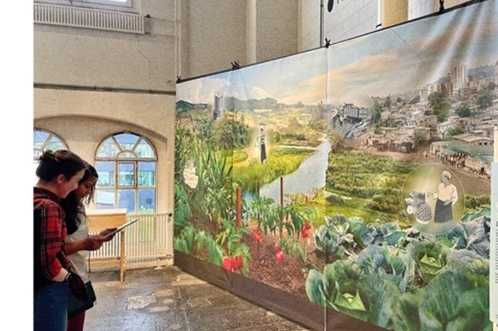
The Plant Rescue Game, Bachelor Thesis – Spring Semester 2022
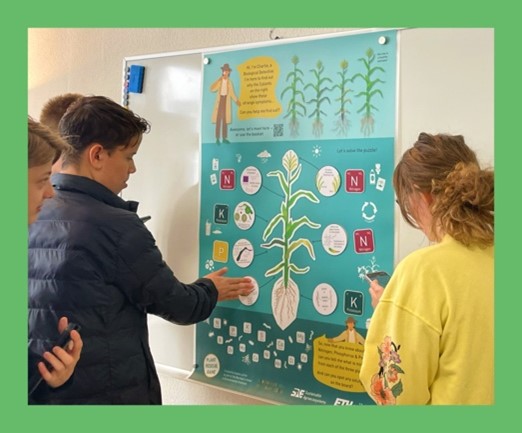
To complement our project’s exhibitions, Saskia Lichtin created the Plant Rescue Game, an interactive installation, as part of her Bachelor’s thesis. The game features a story around three maize plants which were each grown on nutrient-deficient soil. The players follow a biological detective’s instructions to help find out which macronutrient was lacking from the soil. The Instagram account @plantrescue.game and a printed booklet lead the players through the game and deliver helpful hints and information. Other plant needs and the environmental impact of inadequate nutrient management are among the topics discussed in the informational content. The game was played with a class of secondary school students before being displayed at the WFSC exhibition at the Mühlerama museum.
Student internship – June 2022
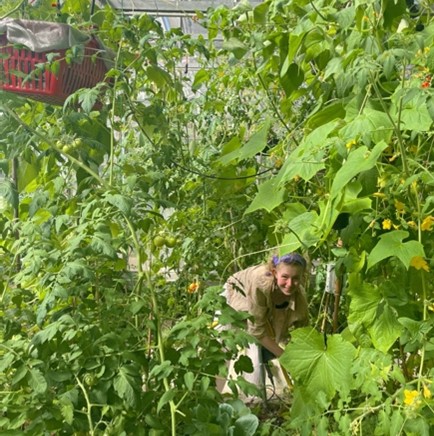
Nienke Naachtegal, student from the art class from the Kantonschule of Wettingen (AR) joined the SAE Group for a 3 weeks internship – digging more into our research and displaying it in a creative way – Nienke further developed the work initiated by the Foodloop project and developed a zine compiling illustrations, interviews of the ongoing research of the SAE group and the activities in the SAE Greenhouse Lab.
Companion-Plant Workshop - April 2022
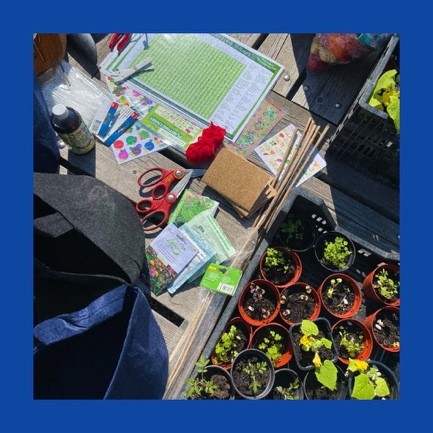
With the students of the Ecology and Biology class of the French Gymnasium in Biel/Bienne, we engaged in an afternoon designing planting schemes using Companion planting charts. Students monitored the growth of the plants; their water and nutrients use along the growth stages. This was the occasion to approach various sustainable agricultural management practices from a hands-on perspective.
FoodLoops Project – December to February 2022
Over the winter, the students from the art class from the Kantonschule of Wettingen (AR) joined with the FoodLoop project and created a serie of GIF animations that displayed in a fun and creative way some of the research of the SAE group, from the valorisation of urine nutrients to phosphorus recovery and companion planting systems.
Kick off for the collaborations with students
In autumn 2021, we started to explore food systems sustainability and agroecology with students of a Biology/Ecology class and the professor Anne-Laure Rauber of the French Gymnasium of Biel. The exchange will continue towards the school year and students will contribute to the installation through various graphical and scientific inputs.
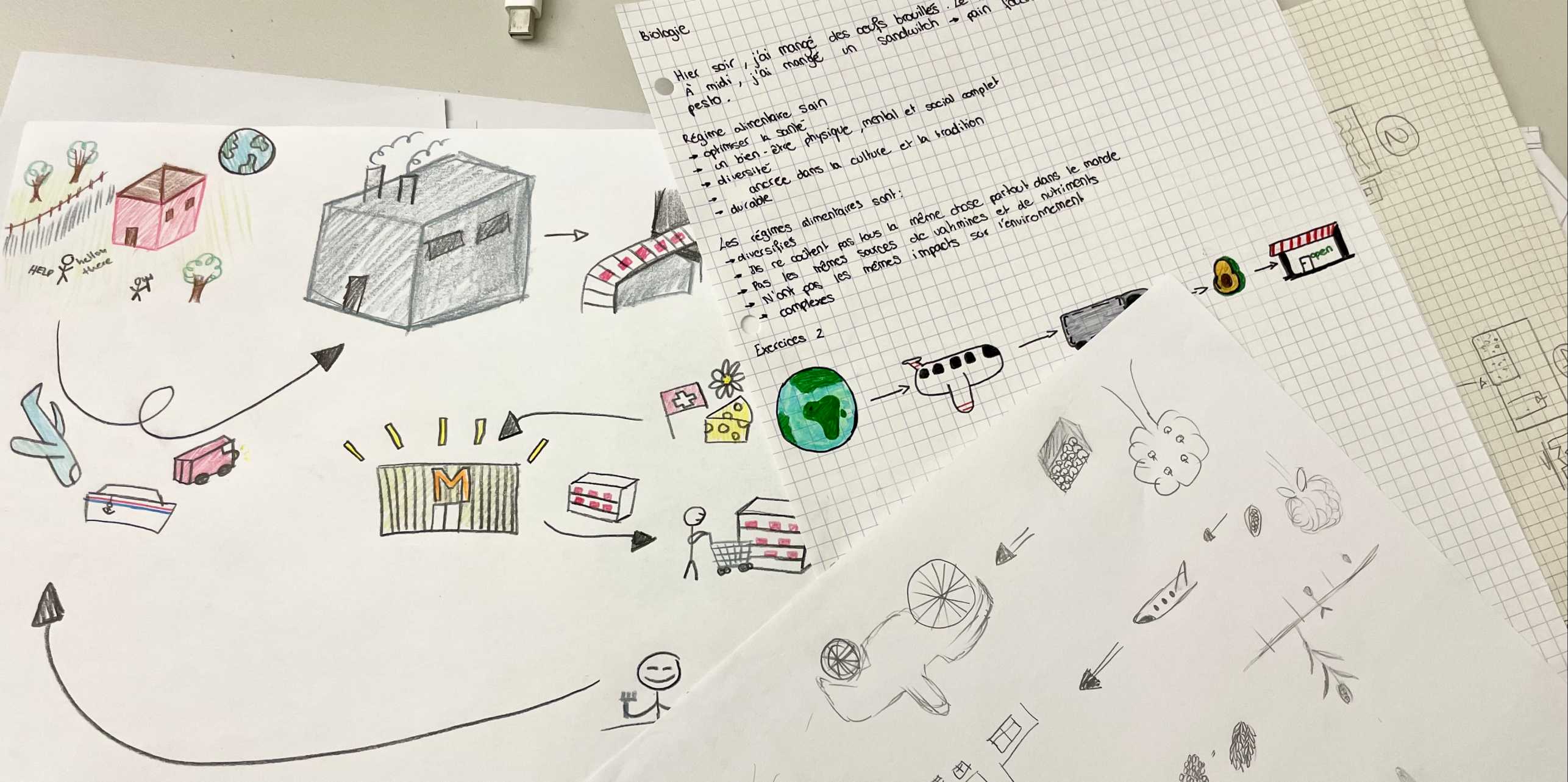
Visual Workshop March 2021
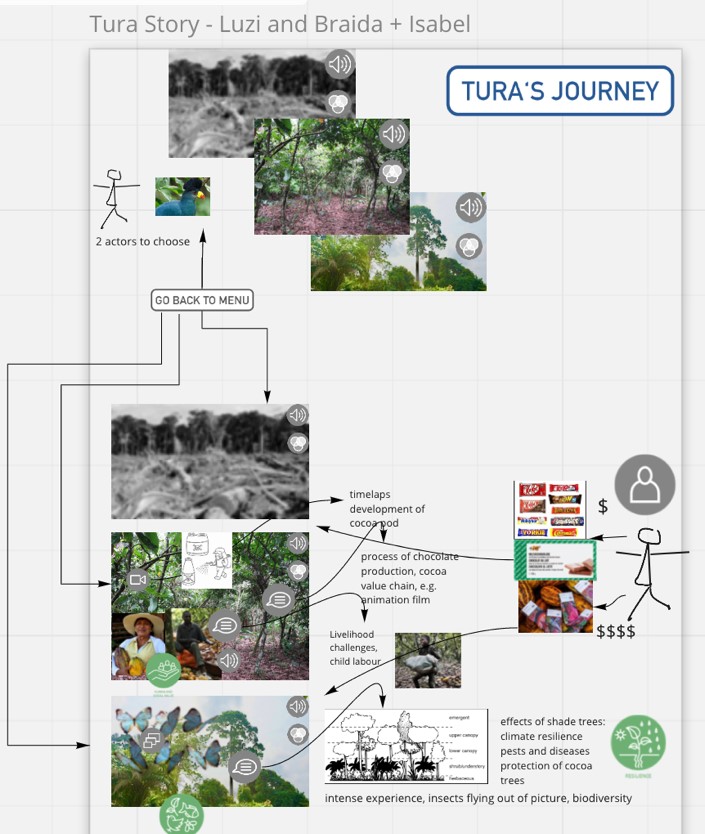
By the instruction of Jill Scott and Natascha Jankovski, we went on developing a visual mapping of the stories we developed in the Storytelling Workshop with Dr. Regina Dürig. Fabio Zünd and Henry Raymond from the GTC (Game Technology Center at ETH Zurich) gave as a short input about the possibilities of augmented reality (AR), using in particular the Artifact App that was developed at the GTC. The aim was to transfer our scientific research, texts, data to a visualisation. We aim to involve our ears and eyes on the journeys throughout our stories.
What is the difference between a cheap chocolate and a bit a more expensive one? What is the value of compost for a farmer’s family? Which is the role of biodiversity? We want to answer to these and to some more questions by diving into various contexts, and fields of our research with the help of AR.
Kick off Zoom Meeting, January 2021
The goal of the meeting was to present to the diverse collaborators an overview of the project. We welcomed the Game Technology Center from ETH among them Prof. Dr. Bob Sumner and Dr. Fabio Zünd, external page Dr. Regina Dürig, external page Prof. Jill Scott, and external page Econ Film.
The AGORA project has the aim to discuss question about sustainable agricultural and food systems in general. For this purpose, we want to initiate an exhibition which should animate the audience to reflect their position in the food-system- value-chain.
For that the implementation of the Augmented Reality (AR) technology is thought using the Artifact App developed by the Game technology Center. Working with four secondary classes (two from the German part, two from the French part) should ensure that the end product has the highest benefit for their audience (find more on the Pdf links).
Storytelling Workshop October 2020
Researchers from the SAE group got an introduction on storytelling and how it could be applied to their research.
Furthermore, possible storylines were extracted to elaborate stories . Thanks a lot to Dr. Regina Dürig for the introduction to «how to story tell». She will support us during the whole project. We are looking forward to the collaboration.
Deutscher Planspielpreis 2019 (German simulation game award)
Third prize goes to Manuel Stamm for his BSc thesis project, conducted as part of the “Edible Research” outreach program
Congratulations to Manuel Stamm for being awarded the third prize of the external page German simulation game award on June 27, 2019 for his BSc thesis project “Role-playing games as an educational tool – Adapting and evaluating the CoPalCam role-playing game on the issue of palm oil with secondary students”.
Manuel completed his thesis in the framework of the SNSF-funded outreach program “Edible Research”. He adapted a game that researchers had developed for stakeholder workshops on the palm oil value chain in Cameroon (CoPalCam), so that the game could be implemented in Swiss secondary school classrooms. The game was a great success with teachers and teenagers (aged 12 to 16). It was played by approx. 150 teenagers and 30 teachers as part of “Edible Research” workshops at Zurich secondary schools.
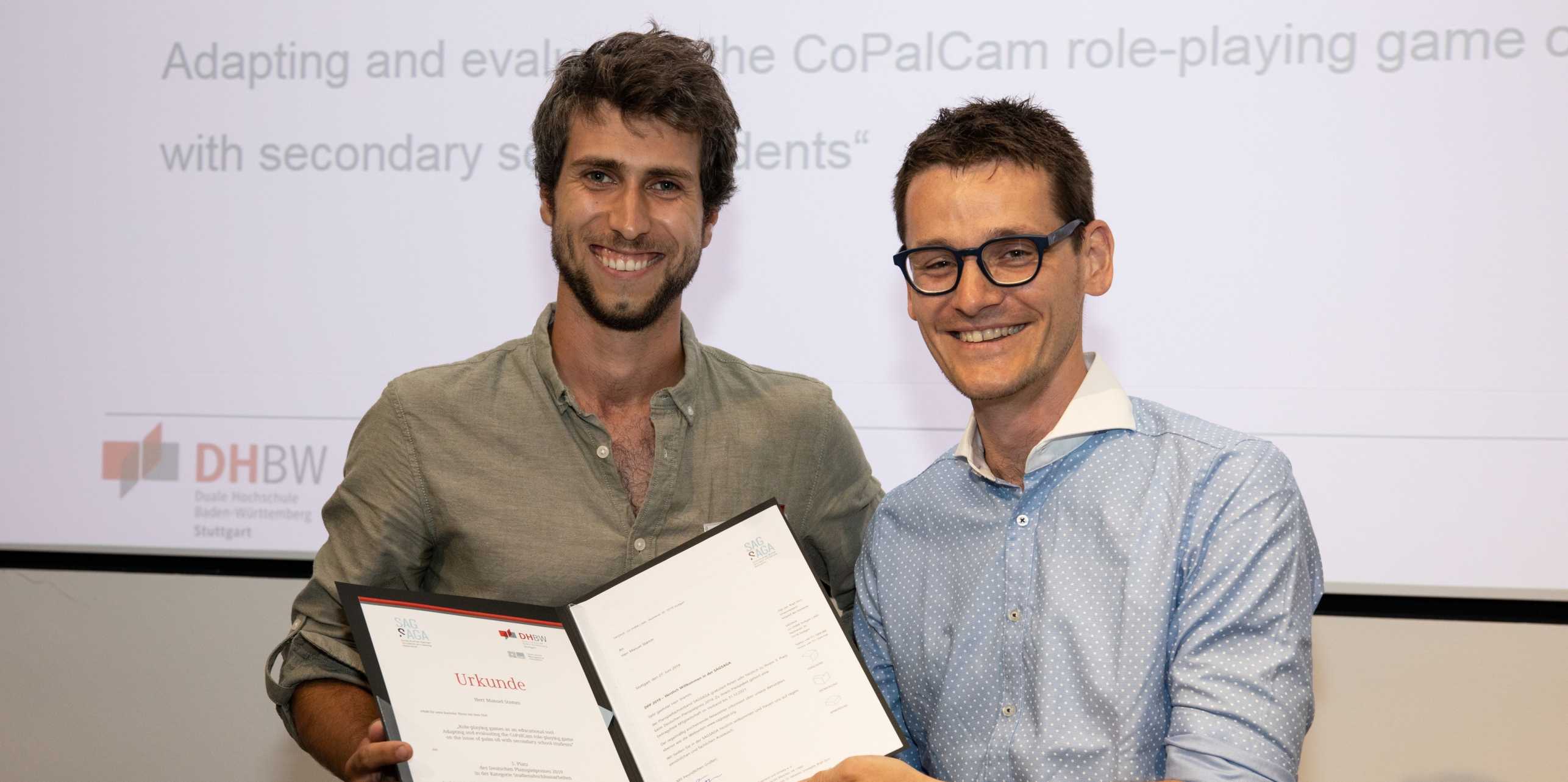
Edible Research team hands over role-playing games
The Edible Research team delivered boxes containing role-playing games based on the palm oil value chain and sustainable food choices to the Zurich University of Teacher Education.
17.8.2018
The SNF Agora project Edible Research has had another success, packaging two different role-playing games for use as teaching materials on sustainable food systems. One game uses role-play in order for players to better understand stakeholder decisions in the palm oil value chain. The second game has participants build a burger of different foodstuffs to see the relationship between climate change and food consumption.
Anett Hofmann from the Sustainable Agroecosystems Group at ETH Zurich delivered the boxed games this week to the Zurich University of Teacher Education (PHZ). Monika Albrecht, head of Sports, Home Economics, and Health at PHZ, will use the game material during an upcoming continuing education workshop with lecturers from several Swiss universities of teacher education. In the fall, she and her colleagues will implement the games in their classes with future teachers, who will, hopefully, further share their experiences in their own classrooms.
The game boxes will stay at PHZ, becoming part of the PHZ library catalog, and teachers will be able to borrow the game materials.
Edible Research returns to Lugano
We conducted the "Burger game" with in total 88 more students aged 15 to 17 in the Liceo Cantonale Lugano I and II. Below a picture of the students playing the game.
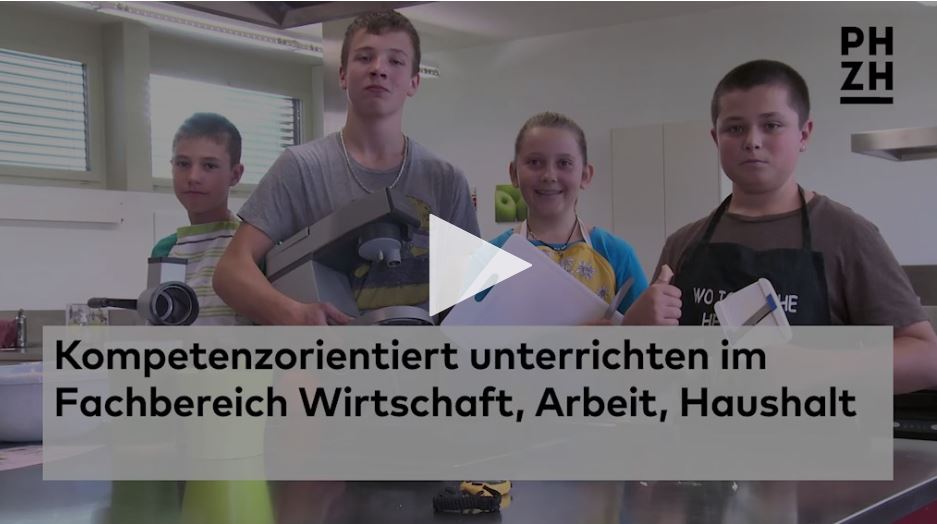
Collaboration with PH Zurich, Fachdidaktik WAH (Wirtschaft-Arbeit-Haushalt)
The two games we developed, the "Burger game" and the "Palm oil game", aim at raising the awareness of teenagers towards a more sustainable consumption. These games are introduced to the board of teaching methodology WAH at PH Zurich in late summer and autumn 2018. Also, we will be offering further education workshops on the games for students training to become WAH teachers.
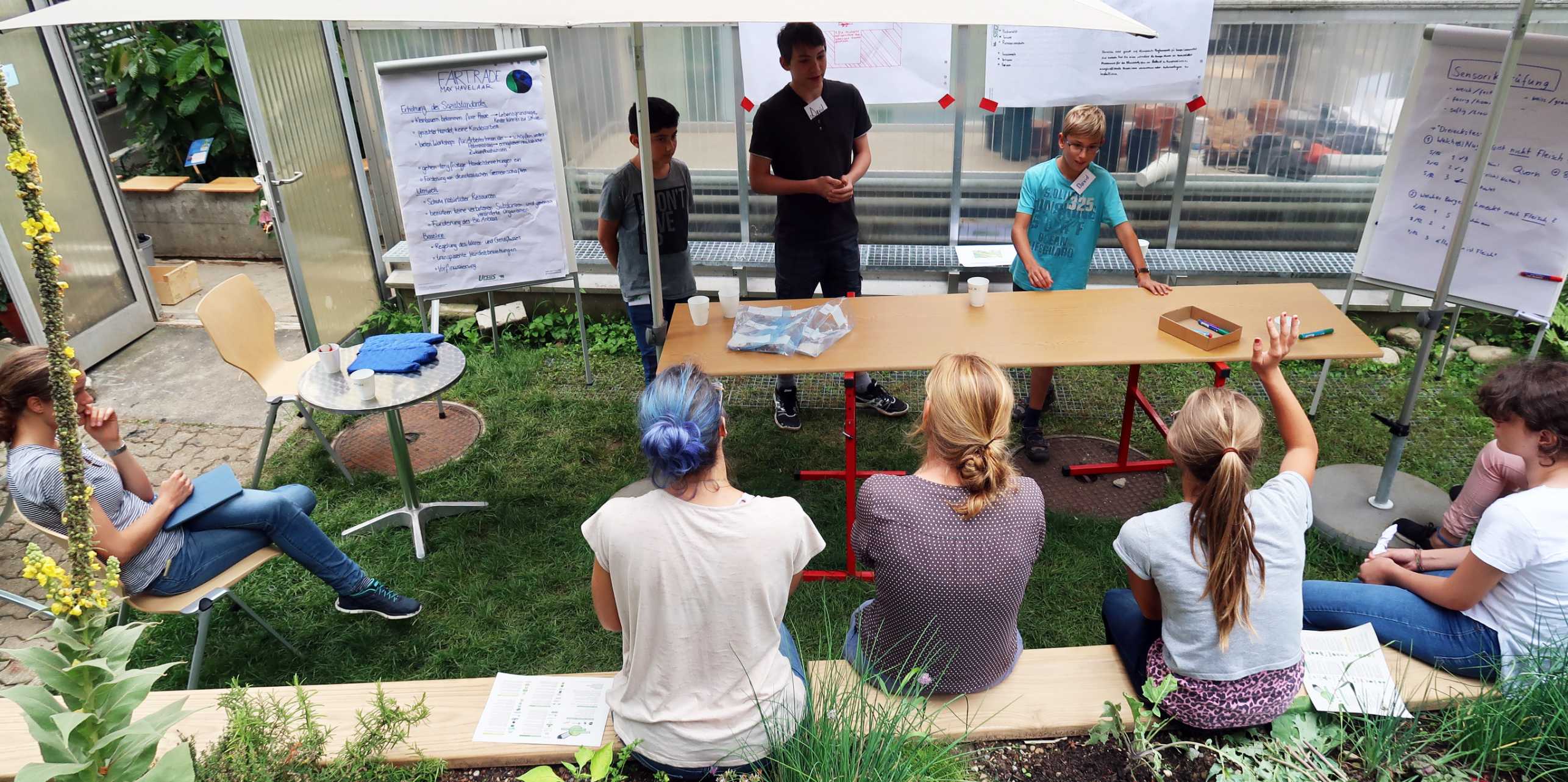
Collaboration with Biovision CLEVER
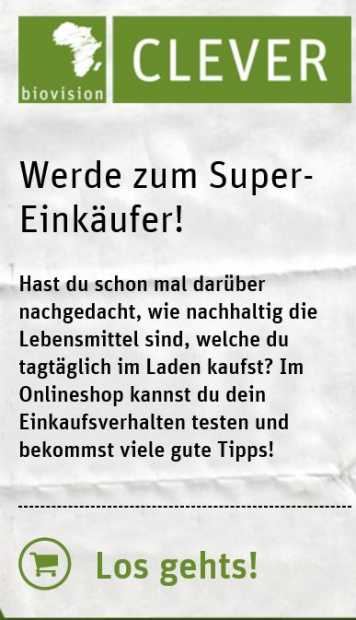
The Biovision project “Sustainable Consumption” seeks to make the Swiss population, particularly the young, more aware of the impact of their own patterns of consumption on the health of humans, animals and the environment. We are collaborating with Biovision in this area.
Edible Research visits Schlieren
The Edible Research team visited the Berufswahlschule Limmattal in Schlieren to help students better understand how the value chain of palm oil works.
Edible Research travels to the Italian part of Switzerland
Luna Uria, student assistant at the Sustainable Agroecosystems Group, conducted our "Burger game" with 6 classes (in total 128 students) at the Liceo Cantonale Lugano 1.
Into the greenhouse: Making research edible
The Edible Research team welcomed young students into the greenhouse at ETH to learn about crop production systems and value chains and to better understand their role as consumers. Learn more here
